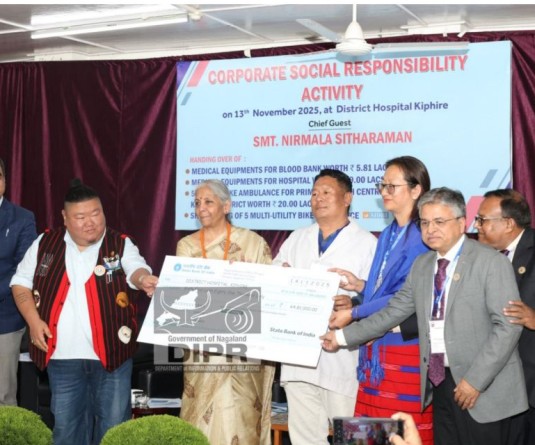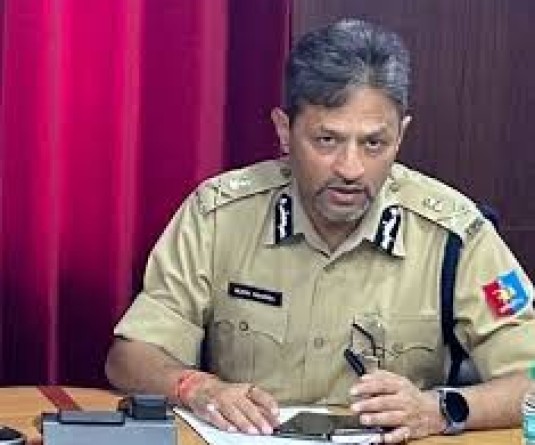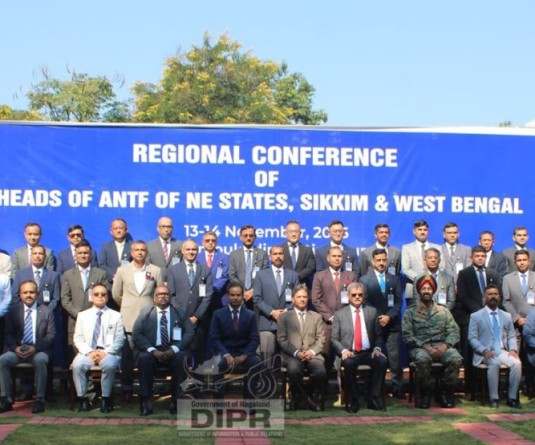
Morung Express News
Dimapur | March 3
The Election Commission of India runs one of the biggest, most complex, democratic machineries of the world. The Morung Express explained the process of voting in its story on how proxy votes are cast despite such complex election machinery. Today, we explain the counting process from Dimapur where the counting to the February 27, 2018, Nagaland polls happened in the Deputy Commissioner’s office.
Method to madness
Each Assembly Constituency—there are five in Dimapur—was given a room to itself. In each room, separated by a steel wire mesh wall, sat counting officers from the government and counting agents on behalf of the contesting candidates.
“This is a good idea because in the days of ballot paper voting, sometimes counting agents would sometimes reach over, grab, chew up and swallow ballot paper if results were not favourable to them,” said a counting agent. Each agent came equipped with a counting sheet, neatly numbered and classified into parties and polling stations. No mobile phones were allowed into this area, and each room was manned by two central security forces personnel. GBs are also present in each room, and two general observers do rounds to each room.
The Electronic Voting Machines on which the votes were cast, sealed by each presiding officer at the end of February 27 polling, were stored in a separate facility (on the terrace). The EVMs were brought into each room, managed by an official, at the signal of the Returning Officer or the Assistant Returning Officer, in-charge of the counting in every A/C. Each EVM was cracked open in front of the counting agents, step by step, with officials announcing each step to their ‘table.’ Each table had a Counting Supervisor, a Counting Assistant and a Micro-Observer, drawn from various departments of the government, including teachers at government-run university and colleges.
On the press of a button, the EVM blinked up the magic numbers of one candidate at a time. Once the numbers were out, counting agents had to sign their consent to the process by way of a paper that is passed from the officials to the agents, and back, through a hole in the mesh wall. Right after, chatter breaks out as agents tally numbers. “See, people don’t want to vote for change, what to do,” said one agent to the other, finding themselves on the stiff end of the wall—agents, most clearly well versed with the election process, maintained jovial relations with other agents, at times joking even about how much money passed hands on poll day!
Each A/C room maintained a white board to reflect numbers as the counting unfurled in rounds (7-10 rounds depending on number of polling stations). Each round could end only after the numbers were uploaded online, including votes cast by Electronically Transmitted Postal Ballot System and Postal Ballot. The numbers were then declared to the people waiting outside the DC’s office using a Public Announcement system. If a problem occurred with the EVM, the VVPAT was used for physical counting of votes.
The DC of Dimapur remained active throughout, resolving issues quickly whenever they cropped up, as did much of the staff that assisted in the counting exercise, also answering questions whenever required. The exception was one of the RO/AROs who not only remained slow but also agitated, refusing to cooperate with the press in general observation of the poll process.
Do numbers speak?
They do. Counting agents admitted that the money spent on buying proxies had paid off, but not completely so. In many places, people had taken money from, say, two parties but landed up casting a vote to a third candidate, or even NOTA. In other places, admitted counting agents, while a whole village had decided to cast its vote for one candidate, families had decided to split their votes among different candidates.
“We have covered every household,” said a counting agent in jest—“even we didn’t go to them, they came to us for money.” Voters came with high pricing attached to each vote, as well as the proxy votes many would cast, with the amount increasing as polls approached. Proxy voters were paid while they stood in the voting line. “We even bought postal ballots,” admitted a counting agent. “There is no doubt that the candidate will have to make up for his losses if he comes to power!” said one agent.
Is there a way out? “Yes, if village authorities decide not to allow any proxy votes at all, it will be a first step,” suggested a counting agent. With an extensive electoral machinery, there is really little new that the ECI can do except, perhaps, implement its own rules.






